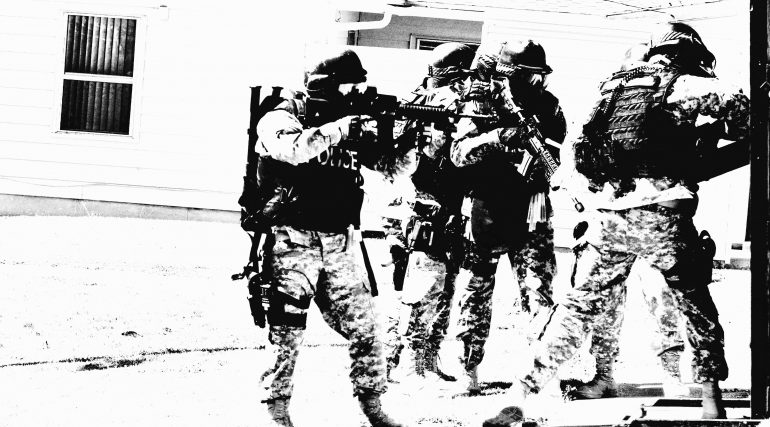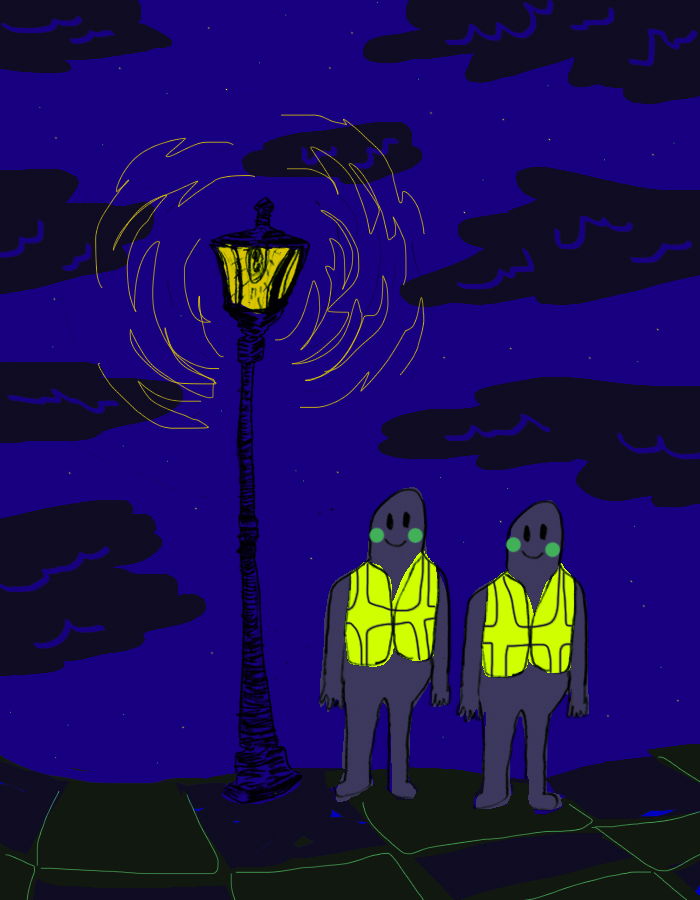On Dec. 28 2017, an unidentified man called the police of Wichita, Kansas and gave them the address of 28-year old Andrew Finch. The caller claimed to have shot and killed his father and informed the police that he was holding his mother and younger sibling hostage in their home. He added that he “already poured gasoline all over the house” and that he “might just set it on fire.” The dispatcher promptly replied, “we don’t need that, OK?” but the caller asserted that “in a little bit, I might” before hanging up.
Law enforcement quickly responded to what they perceived to be a very serious situation. Officers were dispatched to the address that the anonymous caller provided and arrived at 6:30 p.m. to neutralize the threat. A vigilant officer approached the Finch residence and was met by a confused Andrew, who opened the front door, unaware of the gravity of the situation. After a brief verbal exchange, Andrew moved his hands towards his waistband.
He was fatally shot.
He had two kids.
This tragedy was the result of a foolish hoax. 25-year-old gamer Tyler Barriss, known online as “SWAuTistic,” was allegedly responsible for the prank call. He didn’t even know who Andrew Finch was. According to the Washington Post, two unnamed gamers got into an online argument while playing “Call of Duty: WWII.” One gamer provoked the other to “swat” him, which resulted in Andrew Finch’s home address being shared for reasons that are not entirely known. The gamer then contacted Barriss, who has a history of and reputation for phoning in fake police reports, and requested to have a SWAT team sent to the provided address.
Swatting is an online phenomenon of deception; a prank that involves contacting emergency services in an attempt to lead armed law enforcement officers to a specific address. The aim is to present a serious enough situation so that a SWAT team will be dispatched. The intent is to scare someone in a troll-like manner, just for the fun of it, but it can easily turn deadly for innocent people like Andrew.
Swatting has gained recent popularity in online streaming communities. Popular “League of Legends” streamer, Trick2g, faked a SWAT home invasion in 2015 while streaming to hundreds of viewers. Known for an over-the-top persona and entertaining gags, he staged a swatting of himself for fun and was slapped with a four month ban by Twitch.tv for violating their terms of service. Trick2g’s fan base was quick to support him and in an online statement, Trick defended his actions: “We don’t have to always be politically correct to have a sense of humor and we don’t have to hide the fact that we think something is funny simply because someone might not.” In another more recent and bizarre case, “Overwatch” streamer TrixxieTrix was swatted by internet fans attempting to troll him. But one of the five police officers dispatched was familiar with Trixxie’s online presence and recognized him. On his webcam and in the middle of a live stream, Trixxie and the officers ended up discussing what Twitch.tv is and the nature of swatting:
“They just fuck with him to get him off the game?”
“It happens to Twitch streamers all the time.”
“Oh, that’s Sodapoppin [another Twitch streamer]? The guy who gets crazy money from doing nothing?”
“Not doing nothing. He’s living the dream.”
It’s not all fun and games though, and Barriss’s latest antic is evidence of a much darker and more sinister side to the extreme levels that modern online trolling can reach.
After Wichita Police discovered that Finch was not the intended target of the swatting incident, nor part of the “Call of Duty” dispute, Barriss was tracked down and arrested a day later on Dec. 29 at his home in Los Angeles. He was charged with giving false alarm and his bail was set at an exorbitant $500,000. Some time after Finch’s death but before Barriss’s arrest, Barriss took to internet platforms to make a public statement in his defense.
On Twitter he wrote: “I DIDNT GET ANYONE KILLED BECAUSE I DIDNT DISCHARGE A WEAPON AND BEING A SWAT MEMBER ISNT MY PROFESSION.” [sic]
A YouTube video originally uploaded by Barriss, which has since been deleted, announced: “I don’t believe that I’m the only guilty party involved in this whole incident, considering I was contacted and…almost instructed to SWAT an address.”
Leading up to Finch’s death, Barriss more or less had earned an online reputation for being willing to call in fake bomb threats and other hoaxes to prank unaware gamers—hence the “SWAuTistic” username. In 2015, he served time in Los Angeles County Jail for making multiple fake bomb threats which caused a TV station and two schools to be evacuated. It was also recently discovered that Barriss called in a hoax with similar attributes to the Finch incident in Calgary, Canada on Dec. 22, 2017. Although the police and intended target were able to figure out that the call was false, the Calgary Police Service has since issued a warrant for Barriss’ arrest and charged him with public mischief. He currently faces involuntary manslaughter charges and could face up to 11 years in prison if convicted for the death of Andrew Finch.
Nevertheless, a human being has died because of swatting. Finch’s family has been critical of the Wichita Police Department following Andrew’s death, and with good reason. Why were there no warnings? Did they take measures to verify the validity of the called-in threat? How did someone totally unconnected to the originating dispute in “Call of Duty” end up being shot? In Jan. 2018, the Finch family officially filed a federal civil rights lawsuit against the city of Wichita, Kansas and the Wichita Police Department. The tragic death of Andrew Finch undoubtedly raises concerns about the dangers surrounding police violence. The officer who fatally shot Finch was placed on paid administrative leave, but the Finch family has called for the officer to be charged. In an interview with KWCH-DT, Barriss stated, “Of course, you know, I feel a little of remorse for what happened. I never intended for anyone to get shot and killed. I don’t think during any attempted swatting anyone’s intentions are for someone to get shot and killed . . . I’ll just take responsibility and serve whatever time, or whatever it is that they throw at me. I’m willing to do it.” Though Barriss has expressed some kind of remorse and regret since his arrest, nothing done here on out can ever make right the irreparable damage caused by his folly.
This article originally appeared in the print edition of our February 2018, issue.





